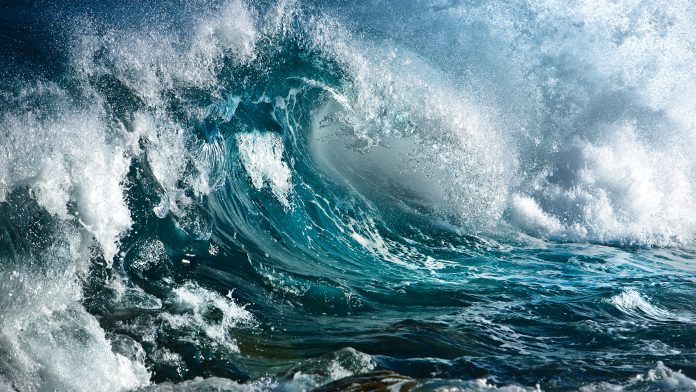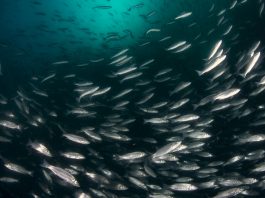Anya Waite explains how the Ocean Frontier Institute, led by Dalhousie University, is driving the science and innovation needed to solve urgent ocean-climate challenges.
The ocean protects us against the worst impacts of climate change. However, emerging science shows that its ability to absorb carbon and regulate temperatures may be changing in ways we don’t understand. This uncertainty critically undermines global climate targets and puts the well-being of our planet, communities, and economies at risk.
Researchers, policymakers and industry leaders today represent the first generation that is fully aware of the risks of climate change and the last generation that can change the trajectory of the climate crisis. The global challenge of our lifetime is surviving that crisis. For success, we must improve climate forecasts to set smarter climate policies and strategies, and invest in the science and technology of safe, responsible and scalable climate solutions and supporting infrastructure.
Established in 2015, the Ocean Frontier Institute (OFI) is a global leader in ocean research. OFI brings researchers, industry and government together to solve complex ocean problems. Our projects emphasise a transnational and interdisciplinary approach to research, producing enduring social, environmental, and economic benefits.
Transforming climate action
In 2023, Dalhousie University launched a groundbreaking new $397m research programme: Transforming Climate Action (TCA). With funding from the Government of Canada and other international partners, the programme will be one of the most intensive investigations ever undertaken into the ocean’s role in climate change. Led by Dalhousie’s Ocean Frontier Institute, the TCA programme is organised into cross-cutting themes that span natural science, applied science and engineering, and social science. The research focuses on three key objectives:
- Reducing uncertainty about natural ocean carbon sequestration in a changing climate
- Making Canada a global leader in ocean-related carbon reduction and removal
- Promoting a just and equitable adaptation for communities in a changing climate
Researchers from Dalhousie and partner institutions Université du Québec à Rimouski, Université Laval and Memorial University of Newfoundland are uniting as part of this globally relevant and transdisciplinary programme. With over 170 experts across four institutions, TCA will unify complementary research strengths and infrastructure to inform climate action.
Building global partnerships
The TCA programme is supported by more than 40 national and international partners, ensuring global impact and fostering opportunities for meaningful collaboration and engagement. This partnership network includes:
- National Oceanic and Atmospheric Administration;
- Woods Hole Oceanographic Institution;
- GEOMAR Helmholtz Centre for Ocean Research Kiel;
- Alfred Wegener Institute;
- Kiel Marine Science; and
- 14+ industry partners.
Our partners are providing a range of contributions to the TCA programme, including funding support, shared resources (e.g., data, equipment and ship time) and research collaborations.
Cutting-edge research
Novel data collection techniques will be developed to model the impact of climate change to reveal how the North Atlantic is changing and how it is impacting climate. Specifically, ocean instrumentation, platforms and communication systems will be integrated using novel and near-real-time technologies to fill critical knowledge gaps and transform ocean observations by merging expertise across ecology, physics, engineering, computer science, genetics and the technology sector.
Advanced biogeochemical sensors for carbon-related parameters will be developed, including dissolved inorganic carbon and total alkalinity. This includes in situ eDNA sensors to characterise the biological content of our oceans. To support the data collection, remote communication networks will be established using autonomous vehicles both below and above the sea surface to acquire the data remotely.
The TCA Artificial Intelligence (AI) research will develop AI models to simulate and optimise ocean sensor/platform deployment decisions. This includes supporting the essential observations and modelling inputs required for measurement, reporting, and verification in the North Atlantic oceanographic and environmental settings, and the environmental monitoring approach necessary to assess the ongoing effects of ocean alkalinity enhancement on ecosystem health, biodiversity and elemental cycling.
OFI researchers recognise the opportunity to increase the impact of their research and innovation by partnering with industry leaders to scale their work into market solutions or to commercialise their solutions into new ventures. These efforts are enabled and supported through numerous opportunities to collaborate with industry on research and development projects, professional development in entrepreneurial thinking and receiving commercialisation mentorship through accelerators and venture studios.
North Atlantic Carbon Observatory
The Transforming Climate Action research programme is driving the science needed to inform climate action. The next critical step will be to fund existing and new ocean carbon observations to improve observation of the ocean baseline, supporting climate forecasting and enabling responsible marine-based carbon dioxide removal (mCDR) solutions.
OFI is building support for an ambitious, multinational, sustained ocean infrastructure initiative, the North Atlantic Carbon Observatory (NACO), to address this global challenge.
Once underway, NACO’s observations and data products will play a critical role in the development of more targeted climate strategy and policy and provide the required baseline observations to enable safe, effective and verified mCDR. Additionally, NACO will provide the data necessary to accelerate ocean and climate innovations.
Please note, this article will also appear in the seventeenth edition of our quarterly publication.









